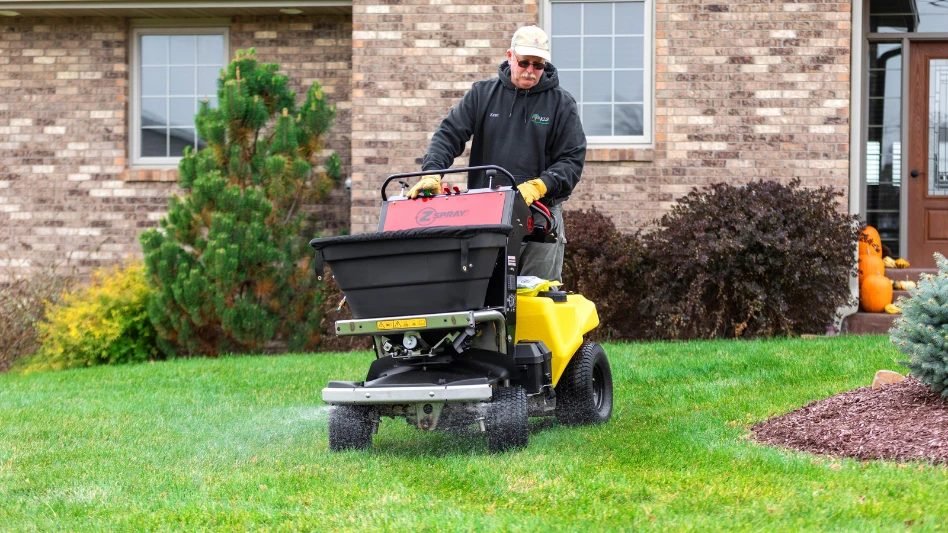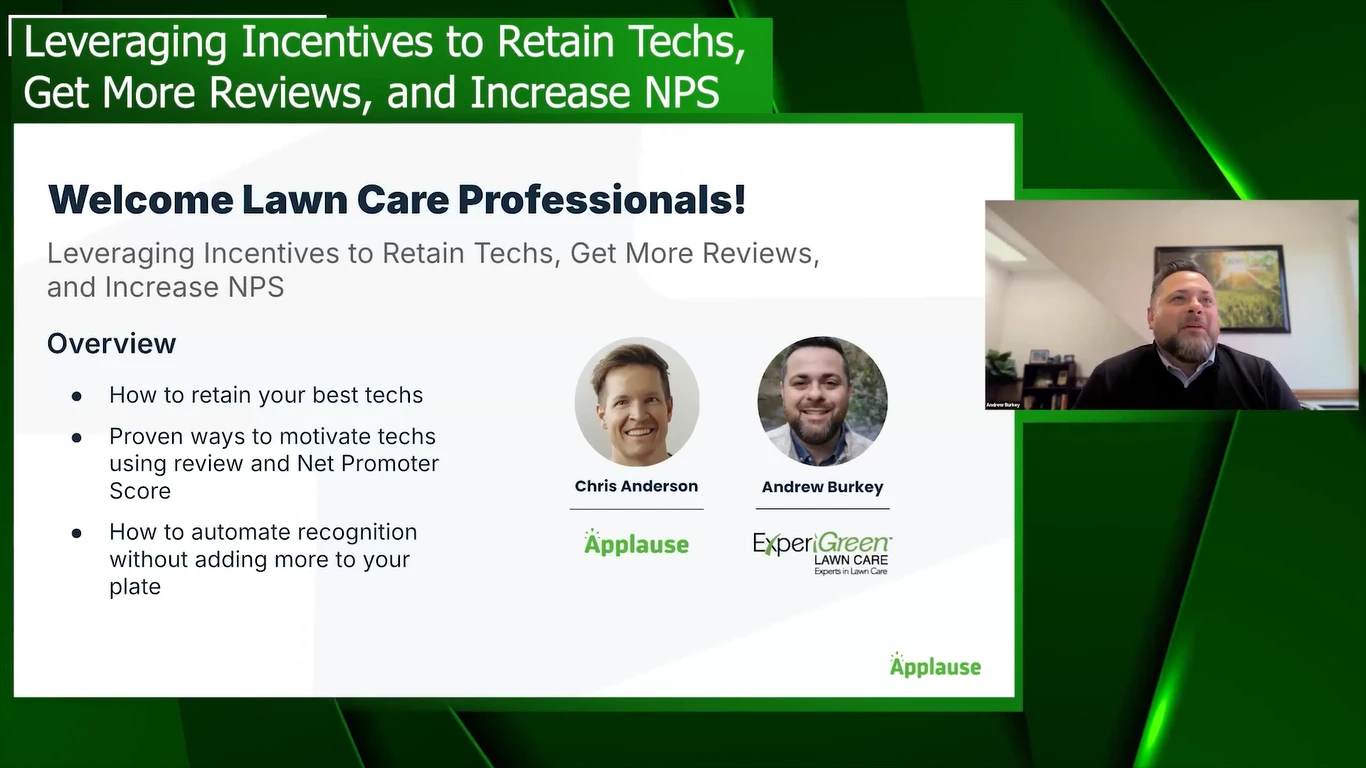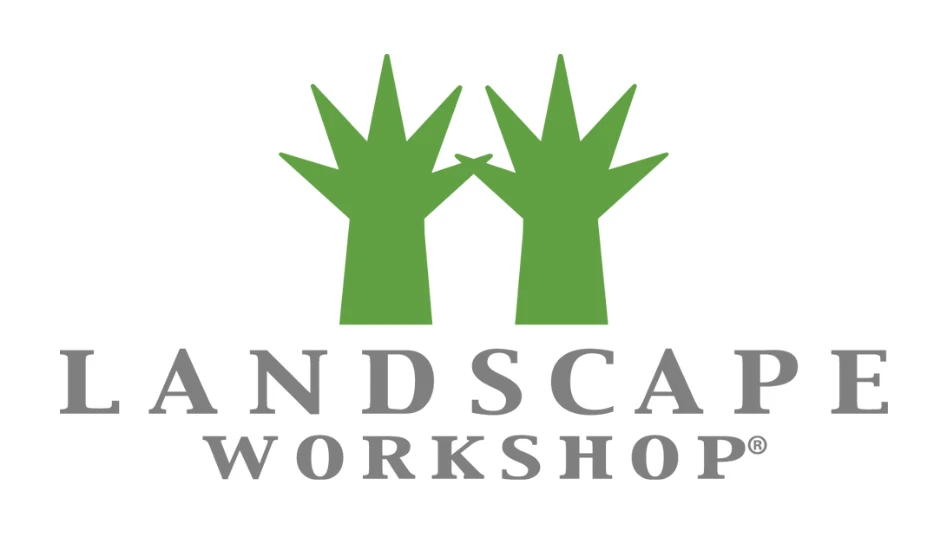

Investing in culture can have a hearty return on investment. For Ideal Landscape, the investment has helped shape the company and is a major reason the company's maintenance revenue has grown by more than 40% the last three years.
Ideal Landscape, which provides commercial landscape maintenance and construction, along with snow and ice management, irrigation and playground installation services, was founded in 1985 as a one-man operation and now has over 120 employees.
Silas Dill, Ideal’s director of operations, says the culture shift “weeded out the bad eggs and added some quality people to the team,” he says.
Dill says that while it may seem counterintuitive to get rid of some employees to improve culture, it’s really the first step in building a culture that will sustain growth and foster loyalty among employees.
“The excuse was always, ‘Well they’re a good worker but have a terrible attitude.’ The mindset shifted to, ‘We don't care how good of a worker you are. You have to be a good teammate too if we’re going to build around you,’” he says. “So, if you have a good work ethic and a good attitude, you can be on this team for a long time. If not, you aren’t going to be around very long. It’s that simple.”
Now after instilling several changes to company’s recruitment process and making sure to prioritize employee satisfaction and ensure crews feel valued and appreciated, Dill says Ideal is starting to see the payoff.
“I think it’s helped significantly,” Dill says of culture impacting growth. “The main thing for us is holding people accountable for our expectations. We have to hold people accountable to get them to buy into that culture. I think that’s what helps people know that we’re serious about going in that direction, which then leads them to want to bring in their friends or whoever they think would be a good fit.”
And by making this commitment to culture, Ideal’s reached over $16 million in revenue in 2021 and is expected to be over $17 million in 2022.
That’s not major growth last season, but all that matters is the that the arrow is pointing in the right direction.“We’ve steadily grown year-over-year since. It’s growth that’s not overbearing on the company and on the production side because if you grow too fast you can’t keep up with it,” says Ideal’s Director of Sales, Jeff Cassani.
“Our culture is about putting the people first,” Dill says. “I think everybody watches the numbers with profit and all that…but at the end of the day you can’t just focus on the numbers. It’s the people who get you those numbers, so we try to put our focus on the little things we can do for them.”
That’s a message that comes from the top.
“I try to emphasize that profit is not the most important factor in our business but that caring and sharing with others is,” says Vice President, Leanna Buckel. “We do not always get it right. We know this. A true leader realizes and accepts that and works to do better every day.”
The smallest things can make a big difference
Dill says at Ideal, referrals are a major part of the company’s recruiting strategy, thanks to employees being eager to bring trusted friends and family on board.
“I’d say probably 60% of our people are here through referrals if not more,” Dill says.
To make referring someone more lucrative, Ideal has instituted a bonus program for each referral.
“We give them $200 after 30 days and then another $200 after 90 days,” Dill explains. “You can get $400 total for referring a person and our employees like that little bit of extra cash.”
Making the switch to the four-day workweek also seemed to keep employees more engaged and produce better results for the business.
“People love their off hours, so at the end of the day, they’re working hard for four days and then they’re off,” Dill says. “I think it’s helped a lot with retention. You see some of these companies where crews are working 60-80 weeks and that’s good for your paycheck but not necessarily for family time. It just wears you out. At the end of the day, I think the work/life balance is better and helps people stick around as well.”
Justine Howell, the company’s marketing coordinator, says taking time each and every month to celebrate the hard work of all Ideal’s employees has helped instill the culture.
“Each month in the summer we host a barbecue as a way to say, ‘thank you’ and get together with all of our employees,” Howell says. “They are a big hit. We’ve done slip n’ slides, dunk tanks, water balloons — they are a great time for everyone to get together. The owners of the company are the ones making the food for everyone. We call crews in a little early on those days and everyone spends time together.”
It’s during these celebrations that employees’ pride in their workplace and their work are also showcased.
“At those barbecues we give out awards for crew member and crew leader of the month,” Howell adds. “We’ve done a cleanest truck and other awards like that, too.”
In addition to the barbecues for the crews, Howell notes Ideal hosts a giant fall festival and Christmas party where employees are encouraged to bring their families.
But while big flashy parties are a nice way to give back — it’s the little things that can set a company apart culture wise.
“Things we’ve tried to implement in the past few years include buying employees’ boots each year after they’ve put in a year at Ideal,” Dill says. “We also have a monthly bonus program where they can earn up to $350 extra each month just by showing up to work on time, wearing a clean uniform and having a professional attitude.”
With a competitive labor market in St. Louis, Dill says competitors are constantly trying to poach employees from Ideal. He remembers one time when an employee decision to stay boiled down to those yearly new boots.
“One guy was offered a pretty decent pay raise at another company, and he turned it down,” Dill recalls. “And he told them that we pay for his boots. With his pay raise he could’ve gotten a new pair of boots fairly easily, but it’s the little things like that which shows how we treat people and that’s what he enjoys about working here. In his eyes, staying was an opportunity for growth. And it paid off because now he’s a production manager.”

Moving on up
That kind of loyalty is rewarded. With employees more dedicated to the company, Ideal has been able to prioritize promoting from within — another contribution to their recent growth.Dill, Howell and Cassani all say that employees engage more when they see their colleagues aspiring for more and moving up the corporate ladder.
Cassani notes that promoting from within and taking time to evaluate each employee’s strengths and weaknesses allows them to get the most out of everyone.
“You might be a great person all around, but you might be in the wrong spot in the company,” Cassani says. “By promoting within, we’re keeping that good attitude and work ethic and all that but we’re putting them into a position they’re going to succeed, because if they’re in a position where they won’t succeed, then the company won’t succeed. We try to move them around to get them to where they need to be.”
And Dill says deciding who to promote circles back to the key component of the company’s culture — hard work and a good attitude.
“When you’re promoting from within, that’s who the employees respect,” Dill says. “If you’ve got a bad attitude, it’s hard for me to put that person in charge because the people underneath won’t respect that person or take direction from them. They’re just not going to lead well in the positive manner we want.”
If someone is passed up for a promotion, it comes down to just being honest with them.
“I want leaders on our team that welcome the tough conversations, with the ability to deliver a respectful and professional response,” he added. “We never promise anyone a position and remind them there are only so many spots available at times.
For Ideal, the epitome of the perfect person to promote came in Michael Hayes, who now serves as an onsite foreman for the company.
_fmt.png)

“Mike’s a guy who was able to come in and run a key site for us,” Dill explains. “It’s one of our biggest sites. And from the beginning, we could see Mike had a positive attitude and a good work ethic — so it was a pretty easy decision.”
Hayes started with the company in an entry-level position on a mow crew before expressing interest in taking on more responsibilities and ultimately securing his latest title.
“My experience has been most pleasant.” Hayes says. “I love the culture. It’s true that everything rises and falls on leadership, and the entire management team at Ideal are people centered and not profit centered — and that means a lot to me. I’ve worked at numerous different companies over my 47 years of life and it’s rare that you find a company that cares about its employees as much as Ideal does.”Hayes says he sees the company’s emphasis on culture daily, especially with how management and senior level staff interact with new employees and those who make mistakes.

“Their patience is also valuable,” he says. “I’ve seen numerous other employees do things wrong and at other employers they would’ve been immediately terminated. But here, they really try to work with individuals to give them a chance to succeed…getting the opportunity is half the battle and keeping it is the other.”




_fmt.png)
_fmt.png)
Slow and steady wins the race
It’s pretty evident Ideal is doing something right when it’s experiencing such growth. But Cassani notes that this growth is strategic to avoid getting overwhelmed.
Cassani remembers when he started with Ideal and how there’s been upward trajectory ever since emphasizing culture.
“Prior to 2019 and 2020, the company had kind of plateaued and brought in the same revenue,” Cassani says. “We’re not trying to explode, we’re growing smart.”
Cassani says hitting the reset button on jobs that were not a fit for Ideal was key to growth. These could have been anything from not being a full-service account to being outside a service area.
“For a while, we took on any project even outside our service area,” he says. “Over the years while building/improving our internal culture that same culture extended to our clients. We started to say ‘no’ and found that actually helped us grow. By saying no to a property/project that did not fit, it opened space for more that did fit the culture.”

That change also improved the culture.
“As our company culture grew and improved, we were able to find and keep more quality employees,” he says. “As our book of work moved more towards our ideal customers, more employees wanted to come work for us. People take pride in quality work and love to brag about it.”
And now with its culture firmly in place, Ideal is setting its sight on more opportunities outside of their current market.
“We’re looking to expand either north or northwest and obviously that’s a challenge bringing on people to staff that,” Dill says. “But by building a solid culture here and holding everyone accountable, I think that will help us transition a whole lot easier and a lot better… it has to be the same culture here as it is over there, or it will never work.”
L&L
Explore the November 2022 Issue
Check out more from this issue and find your next story to read.
Latest from Lawn & Landscape
- Retargeting Ads – A Secret Weapon for Growing Your Lawn Care Business
- Leading a growing company
- Project EverGreen launches Clean Air Calculator
- Rain Bird acquires smart lawn care company OtO from Toronto
- PBI-Gordon names Marvin as VP of research and development
- Mean Green rolls out Vanquish Autonomous mower
- Focal Pointe launches new podcast series
- Navigating due diligence checklist for selling lawn business





